Buy Know Your Star role model book series, a book of possibilities, especially designed to bring career awareness among today’s students, by exposing them to various life-paths through real-life role model stories with easy explanations for complex professions, fun challenges, and handmade illustrations. For more details, click here!
“Going back to the basics” is what most nutritionists recommend when you ask for a healthy diet to follow for a long and healthy life. We wonder whether it involves eating less or eating more or just eating right? Which brings us to the question, “What is eating ‘right’?” All our questions were answered when we got a chance to meet H.R. Jayaram, founder of The Green Path, who grows fresh organic food without using any chemicals and synthesizers, but with a whole lot of love and compassion! His whole life has been devoted towards nurturing farms and serving mother earth. H.R. Jayaram is a Bangalore-based lawyer who quit his job to become an organic farmer, and what a journey that has been!
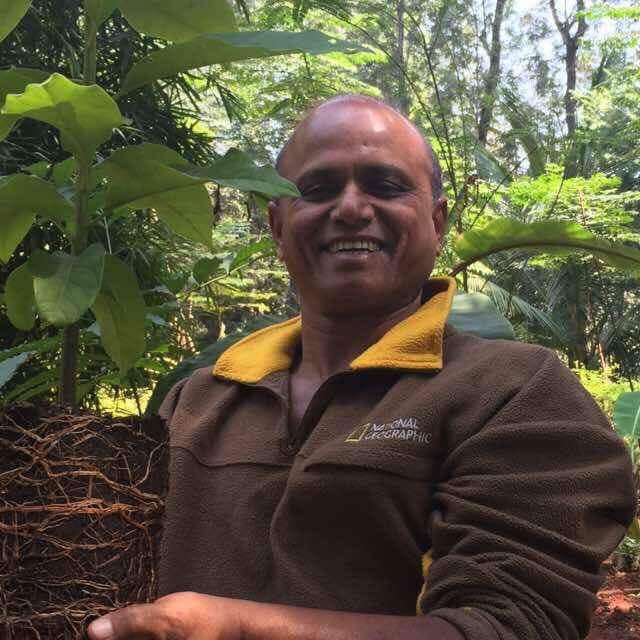
A Peek Into The Early Years
Mr. Jayaram grew up in a forest between the border of Karnataka and TamilNadu, (literally where the infamous bandit Veerappan resided!), with no access to even basic facilities like electricity and good roads. He started farming at an early age of 7; his days were spent feeding cows and hanging around on the farm all day!
After he finished his schooling, this young village boy moved to Bangalore, where he knew no one and had no knowledge about living in a city. He says,
“I just wanted to earn a good living because I wanted to take care of myself and my family. I wanted to work hard and become successful in life!” In spite of the many challenges he faced, his sheer determination and grit helped him overcome all hurdles, and he went on to become a popular lawyer.
He adds, “When I finally became successful and earned enough money, I decided to cultivate a farm in Nelamangala in the year 1998. I had realised that my heart still lay in agriculture, and that’s where I really belonged!”
When asked whether he misses his life in the village, what he calls “the golden time of his life”, he fondly says, “Those were such amazing days! People used to celebrate each and every festival, and everyone had such close connections. Though there were many social problems like caste discrimination, and difficult times during droughts, those days were still better than the current days.”
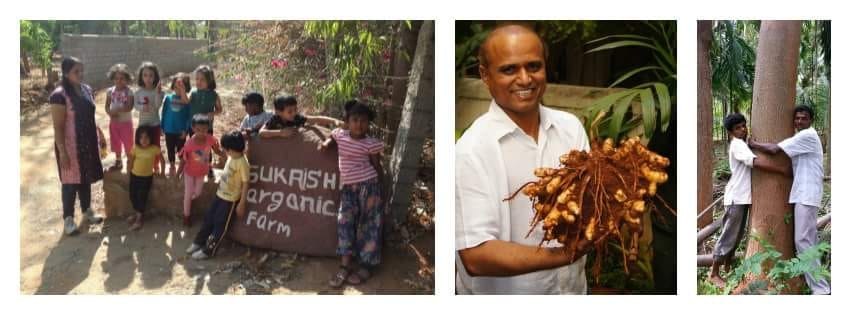
Transitioning From Modern Farming To Organic Farming
From being a lawyer to cultivating lands and exploring organic farming, Mr Jayaram is sure to have faced multiple difficult situations and varied surprises on his path.
He shares, “In my first year of farming, I used a lot of chemicals to cultivate my crops. But the exposure to the organic way of farming that I gained throughout my childhood in the village made me realise that I was not going the right way. That’s when I took a step back, and shifted from the modern ways of farming and transitioned to the good old traditional ways.”
When we asked Mr Jayaram about his journey about his motivation for transitioning from modern to organic farming, he says, “The more I went deep into exploring organic farming, I came across many issues that motivated me to make this a sustainable method. For instance, farmers who follow traditional methods of farming with natural fertilizers yield high quality, but low quantity crops, which translates to less money. These farmers are sometimes forced to shift to modern methods of using harmful fertilizers, because the yield is high, translating to better income. But the damage done to the earth during this process has huge repercussions, which no one educates them about.”
He adds, “When I decided to go the organic way, I picked up slowly but things started getting better soon. I was able to convince some more farmers to join me. After people saw the success in our methods, more farmers were confident to try organic farming. Even the media started making note of our progress, which was very helpful. I was awarded as the Best Organic Farmer in 2004, which gave me the much-needed attention and we ended up starting a federation.”
He further adds, “When I went to Germany, I learned that the organic farmers there had created multiple models of successful organic farms, that people could visit, witness and understand. But in India, at that time, there was hardly anyone who had heard or knew about organic farming. That’s when I realized that we had to do something similar in India, which is rich in agriculture. Germany and Europe don’t have many resources, but were still doing a great job. But we, on the other hand, have access to so many resources, have a great culture, and a beneficial geography, which isn’t being used to its maximum potential.”
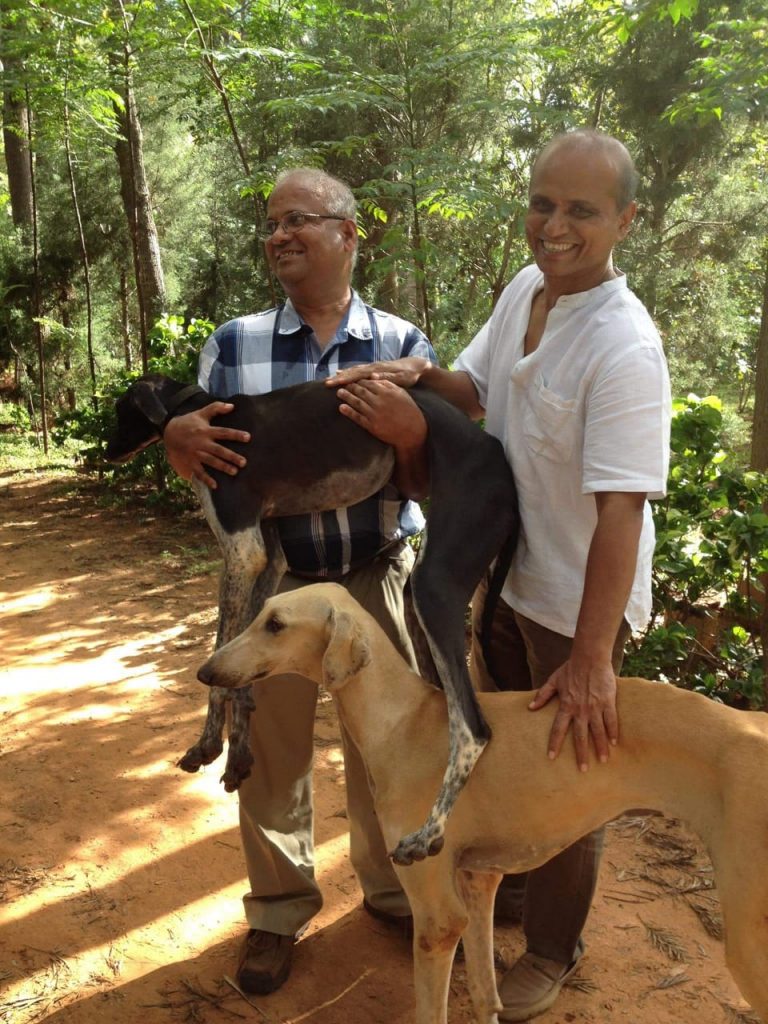
Early Reaction Of People
Jumping from one field to another and starting from scratch is no easy task. When asked about this shift, Mr Jayaram says, “As a reputed lawyer, earning money was as easy as drinking a cup of tea. It wasn’t the same in organic farming, as it is not easy to align people to our vision. A lot of people still don’t understand what we are trying to do. It needs more money, more efforts, more time and I am giving all I have got!”
He shares that anything that is new for the market, is either accepted instantly or sometimes takes a lot of effort. He continues,
“As organic farming grew, the same people who laughed at us in the beginning for exploring these methods, started inviting us to universities. They even started bringing farmers to our farm! These were the same farmers who, at one point in time, made statements like ‘Organic farming is not possible!’, but then there was a change in their mindsets, which was a welcome change.”
He further adds, “I’m happy to be an activist of organic farming, and promoting it as much as possible. For me, organic farming is a peaceful and loving way of life. There’s too much sanity here!”
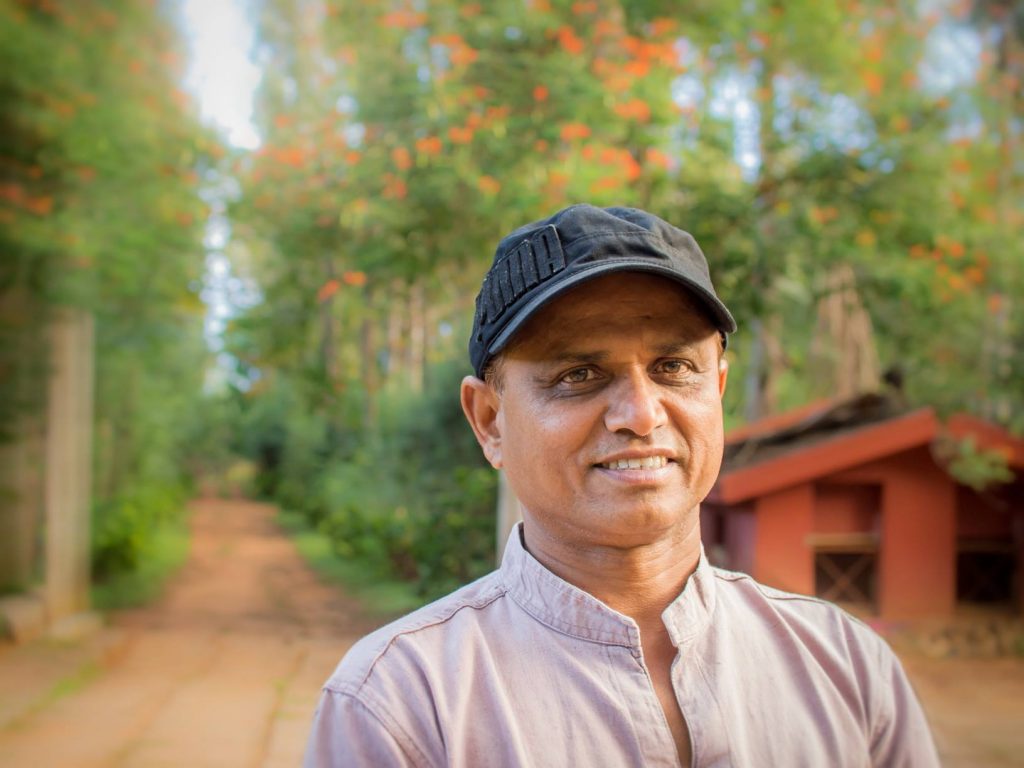
Note For Budding Organic Farmers
For the purity as well as passion, more and more people are trying their hands and gaining more knowledge about organic farming. When asked about specific notes for future-to-be farmers he says,
“Farmers should first have confidence. Soil fertility is not a luxury anymore, and they first need to have systems in place to get the soil back to its original state. Those systems can be defined only after doing some homework. I would suggest them to not hastily shift to organic farming, but spend enough time in live fencing, composting, and rainwater harvesting, which are all very powerful and required practices. Once they do the homework, organic farming is easy. It’s not rocket science!”
Mr Jayaram further adds, “They just need to learn it with a passion and commitment. They can either stay on farms and learn from practical experience while learning theoretically from the internet. There are some diploma courses as well, but hands-on exposure matters a lot.”
Sowing the seed and waiting for it to sprout out is not something that is in a farmer’s hand. Many a times all they need to do is to wait patiently. When asked about other habits a good farmer needs to have, he says, “First of all, walk the talk and talk the walk. If you’re talking about doing organic farming and doing something else, then it has no value. Products have to be grown in the right way. A good farmer loves his profession, loves his products, and loves his land. He loves all that he does. Organic is not just chemical-free, it is also growing with peace and love.”
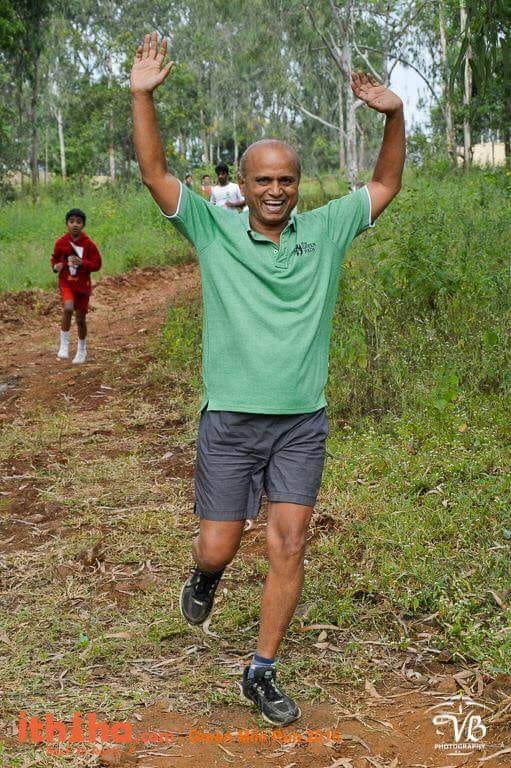
Exploring Organic Ways Of Living
Mr H.R. Jayaram says that our society is missing many things today. In his opinion, humans have become more self-centered and greedy!
“Everything is being done for the money. Our country has border disputes, people are stressed and unhealthy, population is increasing, there is no awareness about right food and so on. Even with advancements in technology and convenient lifestyles, we are not experiencing the kind of happiness that people felt 100 years ago. For a better world, people need to not succumb to extreme materialism and try to go back to the ways of nature. Our projects involve providing nature-friendly models to people, where they can give back to nature, and get back peace and love in the society.”
Organic products are a little more expensive as compared to traditional food that we consume. He says, “About 10-15 years ago, the expenses were even more for organic products, but not anymore. Today you only need to pay a bit more. The lower middle class and middle class families are spending easy money on movies, cosmetics, and other luxury products, then why not spend on healthy food also and make health their priority?”
Takeaway – Habits That Help
“I take care of my body, mind, and food. I’m always positive. Our earth is very small compared to the universe. Earlier I used to think I’m the son of earth, but now I realize I’m the son of this universe! So I make time for my spirituality practices everyday. I also read a lot of books authored by renowned world thinkers.”
Liked reading this? Then you might also like to read Nisha Gupta – International Level Para Athlete Who Campaigns For Inclusion Through Her Medals!
If there’s any role model story that needs to be told, we will tell it. Write to us at contact@knowyourstar.com with your story lead, or contact us on Facebook or Twitter.